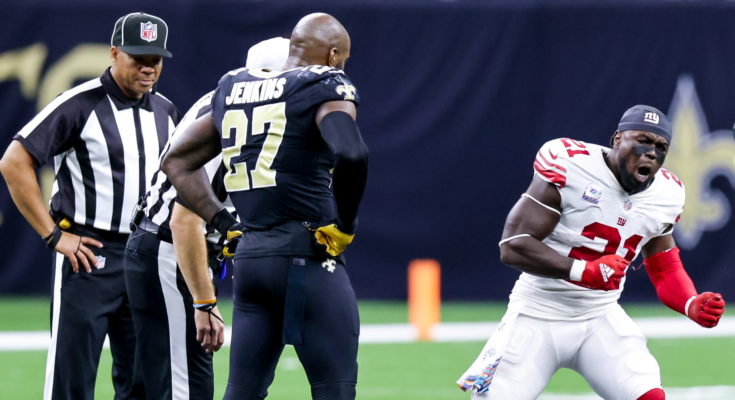In 2010, after the Saints managed a first-drive, walk-off field goal to secure a spot in the Super Bowl via an overtime win against the Vikings, the NFL’s owners knew that overtime was broken. So they fixed it. Partially.
The half-measure crafted by those who run the sport prevented an opening-drive field goal from winning, but preserved the ability of the team that receives the opening kickoff of the extra session to prevail by scoring a touchdown.
While a different approach isn’t necessary for the regular season (the original sudden-death approach is fine for the 272 non-postseason games), the proof that supports finishing a 12-year-old job is in the pudding. And the pudding is currently smeared all over the Shield.
Of course the current overtime procedure places too much importance on winning the coin toss. That truth becomes even more truthful in the playoffs, when the best quarterbacks are running the best offenses in the best games. How many playoff games go to overtime with the score at 6-6? Instead, when the team that wins the heads-or-tails guessing game gets the ball first in overtime, the final result is 42-36, 37-31, 34-28.
The most exciting games of the year become short-circuited by a rule that fails to acknowledge the fact that, over time, the rules have skewed toward NFL offenses and the reality, as mentioned above, that the teams qualifying for the playoffs have pretty good quarterbacks and, in turn, pretty good offenses.
Just play defense.
That’s the only counter that anyone can muster. And it’s accurate, if the rules require both teams to play defense. Under current rule, one team must play defense. The other team, if its offense continues scoring points the same way it has all game long, doesn’t have to even try.
Also, the fact that the Bengals beat the Chiefs on the second drive of overtime in the 2021 AFC Championship and the Rams beat the Saints on the second drive of overtime in the 2018 NFC Championship doesn’t make the rule fair. These are simply two relatively rare examples of a team overcoming this inherently unfair rule.
The Competition Committee seems to be slow-playing the path to change, as the Competition Committee often does. Beyond an unreasonable fear of potential and undefined “unintended consequences” (which is another way of acknowledging an inability to imagine those consequences proactively), some teams my be influenced by the simple fact that every rule that screws one team helps another — and that their team may be the next one to benefit from the unfair rule.
Look at the Chiefs. They were burned by the first-drive touchdown rule in the 2018 playoffs. This year, they advanced because of it. Next year, maybe the Bills win the coin toss and score a go-home touchdown on the opening drive of overtime in the postseason.
Then there are the Packers. They’ve twice been screwed by the first-drive touchdown rule in overtime, in consecutive years. It would be easy to argue that they’re due to have it go their way the next time it happens. So why, the Packers may ask themselves, should we get rid of a rule that can help us before it gets a chance to do just that?
While resisting a much-needed change will definitely benefit those teams that eventually land on the right side of a bad rule in the future, the current rule isn’t good for the game. The current rule isn’t good for the fans. It pulls the plug prematurely on exciting games, with a prevailing sense that the game shouldn’t be over, and that perhaps the best team didn’t win.
Although (as explained in Playmakers), I’d prefer to see the two-point-conversion shootout that the USFL will be using when it debuts next month, the NFL wants no gimmicks. It wants to keep playing football. The easiest fix is staring everyone in the face. Guarantee a possession for the team that kicks off to start overtime, and then convert the game to sudden death if the game remains tied after each team has had the ball once.
Owners, rewind the clock by nine weeks. Think about how the Bills and Chiefs were meeting touchdown with touchdown late in their divisional round game. Whoever had won the overtime coin toss was going to drive the length of the field and score a touchdown. Why shouldn’t Buffalo have had a chance to do what Kansas City did?
Under the rule as it should be revised, the looming reality of sudden death as of the third drive would have set the stage for the Bills possibly having to choose between a win-or-lose two-point try or risking a kickoff to the Chiefs when even a field goal would have won the game. The NFL loves on-field drama, and it’s hard to imagine anything more dramatic than that.
More importantly, it’s fair. And it finishes the job the owners began 12 years ago, when they knew it wasn’t fair to let a team win a playoff game with a first-drive field goal in overtime. (Later that year, the rule was applied to the regular season, even though it really didn’t need to be.) The owners need to realize that they failed to go far enough in 2010, and they need to put the good of the game and its fans above the simple reality that this unfair rule will always help as many teams as it hurts — and that it may help their team as soon as this year.



